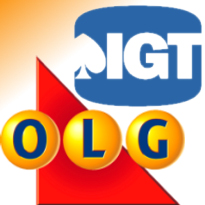 Nevada-based gaming machine developer International Game Technology (IGT) reported a 3% revenue boost in their fiscal third quarter ending June 30. Total revenues were $489m, with credit for the rise given to stronger product sales in Latin America, North America and Europe combined with higher average selling prices. Gaming operations generated 55% of revenues, with product sales accounting for the remaining 45%. Adjusted earnings from continuing operations were up 22% to $78m (26 cents/share). Gross margins were 59%, up 300 basis points year-on-year. Based on current expectations (including benefits deriving from the recent purchase of Entraction Holdings AB) and operating results from the first three quarters of fiscal 2011, the company raised its 2011 earnings guidance to a range of 89-93 cents/share.
Nevada-based gaming machine developer International Game Technology (IGT) reported a 3% revenue boost in their fiscal third quarter ending June 30. Total revenues were $489m, with credit for the rise given to stronger product sales in Latin America, North America and Europe combined with higher average selling prices. Gaming operations generated 55% of revenues, with product sales accounting for the remaining 45%. Adjusted earnings from continuing operations were up 22% to $78m (26 cents/share). Gross margins were 59%, up 300 basis points year-on-year. Based on current expectations (including benefits deriving from the recent purchase of Entraction Holdings AB) and operating results from the first three quarters of fiscal 2011, the company raised its 2011 earnings guidance to a range of 89-93 cents/share.
Land-based resort casinos in the Canadian province of Ontario lost almost $46m in 2010. While that sounds dire, it’s actually an improvement over the $74m loss recorded in 2009. Caesars Windsor led the red-ink parade with a net loss of $16m in 2010. So is this proof that gambling isn’t, as widely believed, recession proof? Rick Laporte, a spokesman for a union representing Windsor’s casino employees, provided the Ottawa Citizen with a list of blame-worthy culprits: passport requirements that went into effect in 2009 kept many Michigan residents from crossing the border into Ontario, as did the opening of casinos in Detroit, high gas prices and a strong Canadian loonie vs. the US buck. But the biggest blow to Ontario casinos’ bottom line was domestic, not foreign. The Ontario Lottery and Gaming Corporation takes 20% off the top of all casino revenues as a “win contribution,” a sum that in 2010 amounted to $271.75m. Someone better call Charlie Sheen, because OLG appears to have a monopoly on the term ‘winning.’